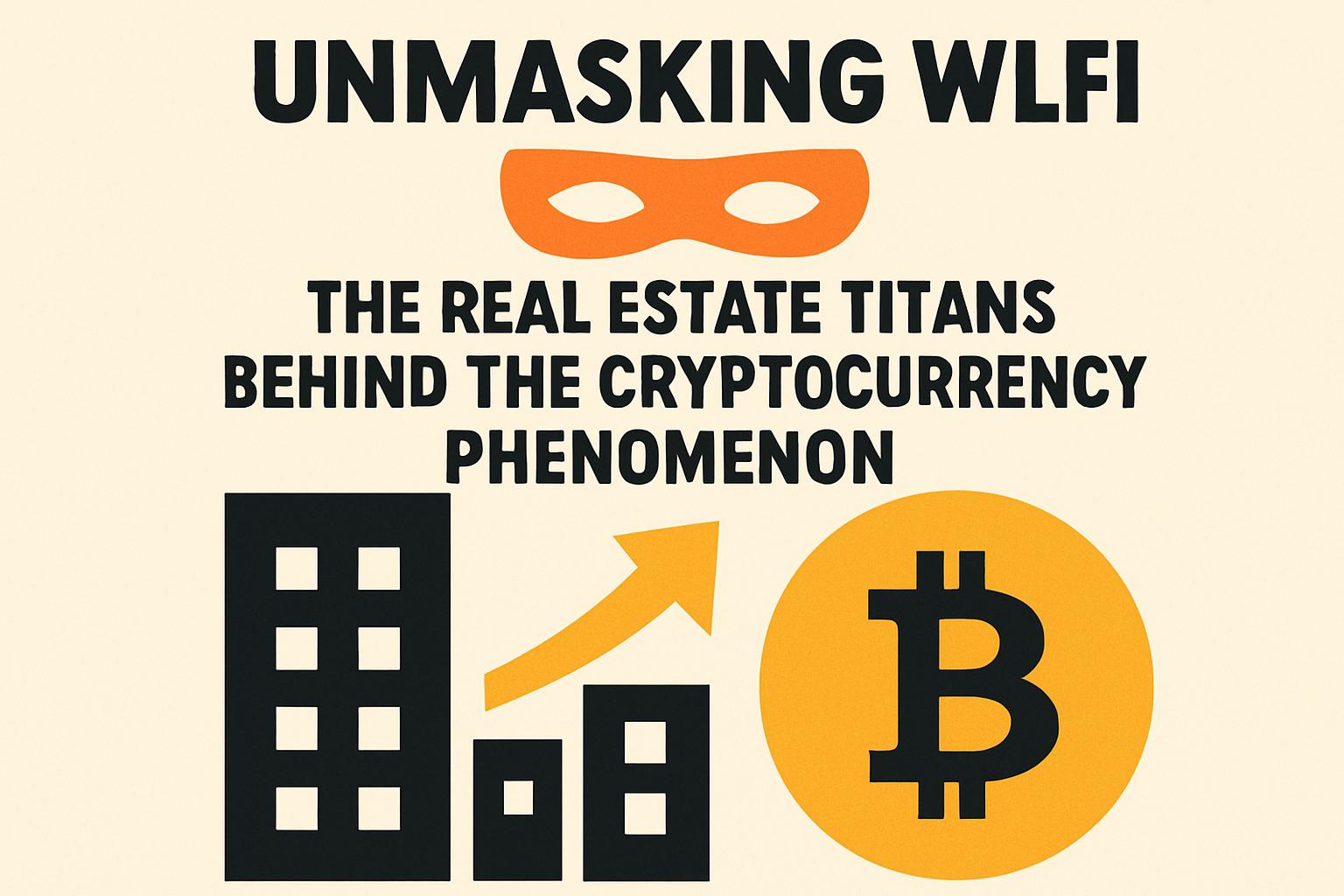In an impressive climax to its token generation event, the WLFI project has stirred waves across the crypto sphere, hailed as a groundbreaking wealth generator since the TRUMP token’s launch earlier this year. As excitement surged, so did skepticism when scrutiny revealed the veiled complexities of its founding team’s credentials.
Amidst a cloud of incomplete disclosures, the charismatic aura surrounding WLFI gave way to analysis, led primarily by investigative reports that exposed the influential ties between two renowned names—Donald Trump and Steven Witkoff.
The Fusion of Real Estate and Cryptocurrency
The WLFI project, often introduced through the lens of the Trump and Witkoff families, boasts of significant contributions from notable figures within these circles. Donald Trump and Steven Witkoff hold honorary co-founder statuses, lending their formidable influence to what they present as more than just a speculative venture.
Central to this venture’s operations is the involvement of Trump’s sons, Donald Trump Jr. and Eric Trump, both of whom amplify their family’s commitment to legitimate U.S. ventures and the overarching ambition of financial freedom. Their public pronouncements emphasize WLFI as a paradigm shift, pushing the boundaries of economic governance.
Steven Witkoff’s descendants, Zach and Alex Witkoff, further root the project in the credibility and experience of the real estate stalwart. While Zach carries the weight of CEO duties for WLFI, Alex represents a familial continuity in the real estate legacy as CEO of Witkoff Group.
A Diverse Web of Creators
The WLFI team extends beyond familial figures to include a collection of innovators like Chase Herro and Zak Folkman, whose backgrounds reflect the diverse tapestry of entrepreneurial intrigue. Their involvement underscores the dynamic intersection of technology, ambition, and at times, unresolved market controversies.
This duo has previously initiated ventures in sectors as varied as dating software, underpinning WLFI’s grassroots appeal with startup agility, even while facing past financial setbacks such as Dough Finance’s hacking incident.
Expanding WLFI’s technical spine are figures like Corey Caplan, an Ethereum pioneer driving the project’s tech-forward vision, and Ryan Fang, who leverages his profound expertise drawn from mainstream financial market corridors to propel WLFI onto the global stage.
Global Implications and Market Perception
As the WLFI project garners traction, it reflects a growing symbiosis between traditional real estate giants and burgeoning crypto innovation. The influence exerted by such interdisciplinary ventures showcases a visionary approach to market expansion and educator markets on the realizable potential of blockchain in reshaping financial norms.
However, amidst acclaim, it contends with the shadows of its alleged opaque political endorsements and whispered pay-for-support schemes. While some industry observers voice skepticism, others remain captivated by the project’s ambitious promise of financial inclusivity.
The narrative of WLFI serves as a riveting testament to the explosive potential of cross-industry dynamism. It encapsulates the challenge met by today’s crypto ecosystems: maintaining the delicate balance between audacity and authenticity.

![[News] Bitcoin at a Turning Point? 10x Research Signals a Bullish Macro Shift Ahead](https://cryptoexplores.com/wp-content/uploads/2025/06/new20250616.jpg)
![[News] Binance Lists $HOME, the Gas-Free, Bridge-Free All-in-One DeFi App](https://cryptoexplores.com/wp-content/uploads/2025/06/news20250617.jpg)